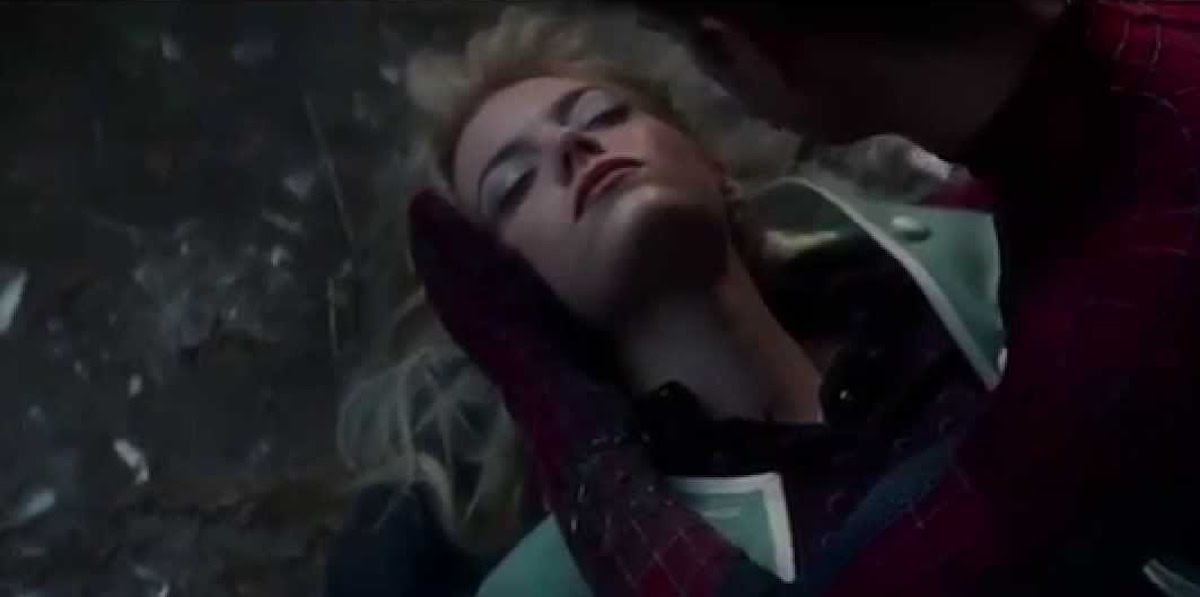Amazon has a new series in the works that aims to take on one of our least favorite tropes in existence: fridging.
If you’ve somehow missed it, fridging–based on Gail Simone’s coining of “girls in refrigerators” in direct response to the death of Green Lantern’s Alexandra DeWitt–describes a character (almost always a woman or girl) whose death is a mere plot point in the male protagonist’s story. She is a means to his quest for justice or revenge, more an inciting incident than an actual character. And she is so depressingly ubiquitous.
Catherynne M. Valente’s The Refrigerator Monologues, published last year, is a direct response to the trope. As she explained in an exclusive essay for The Mary Sue prior to the book’s release, she was inspired by rage at the inclusion of Gwen Stacy’s death in 2014’s Amazing Spider-Man 2 movie.
“It’s not like I didn’t know Gwen Stacy was going to die. As has been noted, she always dies,” Valente wrote. But the specific pacing of the film made her hope that Stacy could exist in this world for a few films before the inevitable. She also called out Stacy’s bold declaration of agency right before her death as “harsh slap in the face,” writing “That old, familiar message slides into our brains with the warm familiarity of a father’s hug: when women make their own choices, disaster results.”
I cried because I was furious that I’d been fooled. Fooled into thinking anything had changed. Fooled into thinking that the punchline could ever be anything different. I cried because they baited me with Gwen’s job and her lines and her lab coat and with the date on the movie reel into believing, just once, that the person I’m meant to identify with in superhero stories could be more than a sassy prop.
So in an incredibly inspiring move, Valente began to turn her rage into writing. While her original idea was to give voices to all the murdered girlfriends, wives, and female superheroes, she didn’t own the rights to those characters. So she invented new ones.
“Welp,” said I, “I guess I’ll just have to create a completely original, cohesive, analog superhero universe spanning the entire history of superhero comics. The Dark Side of the Canon. Why not?”
Over the next two years, that’s what I did. I sat down at my computer and got angry over and over again. I treated superhero comics the way I’ve always treated fairy tales—as repositories of archetypes, of symbols, of lessons fraught with cultural expectations, taught to children without thinking, instrumental in shaping our views of the world while being dismissed as ridiculous kid stuff by the mainstream. I created characters and interconnecting narratives that are something like the Scarecrow and the Tin Man are to Dorothy’s uncle’s farmhands. Something like a contemporary update of Cinderella as an android or Snow White as a cowboy. Dream versions. Cosmic cousins. If you’re a comics fan, you’ll know who I’m mad about. You’ll get all my little jokes and references. You’ll understand the gargoyles. If you aren’t, these stories, my girls’ stories, stand alone as laser beams fired in the dark against the unfairness of … well … the Super Patriarchy. Look! It’s a bird! It’s a plane! It’s the systematic brutalization of anyone with a uterus!
As for what the new Amazon series will look like, according to The Hollywood Reporter, it will focus on five women who were fridged after “crossing paths” with male superheroes. “The five meet in a purgatory called Deadtown and decide to reclaim control of their own stories, discovering their own powers in the process.”
Indeed, Deadtown will be the title of the show. As THR notes, this would be Amazon’s first female-led superhero show. Considering studio head Jennifer Salkes recently stated her explicit goal of “looking for our next big show that women also can’t stop talking about,” this seems like a good contender for that title.
Shauna Cross (Whip-It) is adapting the script and producing, but Valente is also listed in a producing role. There’s no word yet on a premiere date, but we sure hope it’s soon.
(via THR, image: Sony)
Want more stories like this? Become a subscriber and support the site!
—The Mary Sue has a strict comment policy that forbids, but is not limited to, personal insults toward anyone, hate speech, and trolling. If you purchase something through our links, The Mary Sue may earn an affiliate commission.—










Published: Dec 7, 2018 06:00 pm